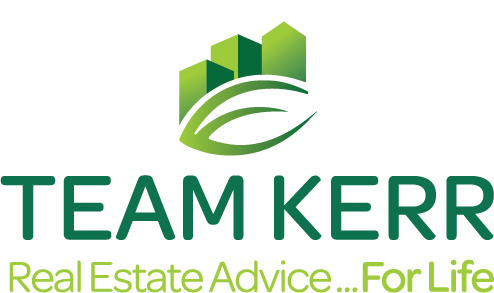
Purchasing a home can be an exciting but overwhelming experience, especially for first-time buyers. It’s common to have a lot of questions about the process. Here are some answers to questions our clients frequently ask when they’re considering getting into the market.
- What is a Pre-Approval?
A pre-approval is a lender’s written commitment to give you a mortgage loan up to a certain amount. It’s based on your income, credit score, and other financial information. A pre-approval will tell you how much you can afford, and aids your buying power; knowing your budget can help you make strong offers without overextending yourself.
- What is a Home Inspection and Do I Need One?
A home inspection is typically something that’s included as a ‘subject’ clause when an offer has been made on a property. An inspection is a thorough evaluation of the home’s condition conducted by a professional. The inspector will check the home’s systems, structure, and components for any existing or potential issues that need to be addressed. At the end of the inspection, they’ll provide a summary of any problems so you can make an informed decision about whether or not you want to proceed with the purchase. Home inspections are typically for the sole benefit of the buyer so you know exactly what you’re getting into, and are a highly recommended part of due diligence.
- What Are Closing Costs?
Closing costs are fees and expenses that are required to be paid by the homebuyer at the end of the home purchase process. These costs can include things like lender fees, title fees, appraisal fees, taxes, and more. The total amount of closing costs can vary depending on the value of the property, the location, and the type of loan being utilized.
Some of the common closing costs include loan origination fees, which are charged by the lender to process the loan, and title fees, which are charged by the title company to ensure the property is free and clear of any liens or legal issues. Other closing costs can include things like home inspection fees, survey fees, and appraisal fees.
It’s important to note that closing costs can add up to a significant amount of money, so it’s important for homebuyers to budget accordingly. Overall, closing costs are an important part of the home purchase process and should be carefully considered and planned for to avoid surprised expenses.
- How Long Does it Take to Close on a House?
The process of closing on a home typically takes anywhere from 30-90 days, depending on various factors. This period is known as the closing period, or the completion period, and it begins after both the buyer and seller have agreed all terms and conditions of the sale. During this period, the buyer will need to complete all the necessary paperwork and arrange for the payment of the purchase price, while the seller will need to ensure all the necessary documents are in order and the property is in the same condition as it was when the sale was agreed upon.
One of the factors that can affect the length of the closing period is the type of mortgage the buyer is obtaining. If the buyer is getting a mortgage, the lender will need to conduct an appraisal of the property, which can take several weeks. Additionally, if there are any issues with the title or other legal aspects of the property, these will need to be resolved before the sale can be completed.
Overall, most transactions are completed within 30 to 90 days. It’s important to both the buyer and seller to work closely with their respective real estate agents and lawyers/notaries to ensure all the necessary steps are taken to facilitate a smooth close.
- What is Title Insurance and Do I Need it?
Title insurance is a form of insurance that protects you against financial loss resulting from defects in the title of a property you are purchasing or already own. Title insurance is an important protection for homeowners, as it provides coverage for a wide variety of risks.
When you purchase a property, there may be hidden defects in the title that are not immediately apparent. These defects can include things like liens, encumbrances, and other issues that may affect your ability to use and enjoy the property. Title insurance gives you peace of mind that your investment is protected.
In addition to protecting your investment, title insurance can also provide coverage for legal fees and other expenses associated with defending your title in court. This can be especially important in cases where there is a dispute over the ownership of the property.
- What are Subjects in a Contract?
Subjects are conditions that must be met before the sale is finalized. These conditions can vary depending on the circumstances of the sale, but are typically included in the offer to protect the buyer’s interests.
Some common subjects include:
- Financing: This subject allows the buyer time to secure financing for the purchase. If the buyer is unable to obtain financing within the agreed upon time frame stated in the contract, they can back out of the sale without penalty.
- Home Inspection: As previously mentioned above, this subject allows the buyer to have a professional home inspection done on the property. If the inspection reveals any major issues, the buyer can either ask the seller to fix them or withdraw from the sale.
- Document Review: Especially if purchasing a strata property, a subject to document review allows the buyer time to review all relevant documents including financial statements, rules and bylaws, and other reports about pertinent information on the property.
- Title Search: This subject allows the buyer to conduct a title search on the property to ensure that there are no liens or other issues that could affect the sale.
It’s important to note that subjects are negotiable and can vary depending on the specific circumstances of the sale. A real estate agent or lawyer can provide guidance on what subjects may be appropriate for a particular sale.
- What Are The Differences Between a Condo, Townhome, and Detached House?
There are many options to consider when buying a property, based on the personal needs of you and your family. The most common options are condominiums, townhomes, and detached homes. Each type of property has its own characteristics that appeal to different types of buyers.
Condos
A condominium, or condo for short, is a type of property where the owner only owns the interior of the unit. Each owner is a member of the strata corporation, which is a type of legal entity that governs a condominium or a multi-unit residential building in Vancouver. It’s created when the developer registers a strata plan with the Land Title Office and sells individual units to different owners.
A strata corporation is managed by a council, which is elected by the owners. The council is responsible for making decisions on behalf of the strata corporation, such as setting budgets, collecting fees, maintaining common areas, and enforcing bylaws.
If you buy into a strata building, you’ll have to pay monthly maintenance fees that cover things like caretakers and amenities. The strata council also meet pretty regularly, either monthly, quarterly, or at some other level of frequency depending on the size of the building.
Townhomes
A townhome is a type of property where the owner owns both the interior and exterior of the unit, as well as the land it sits on. Townhomes are also attached to other units, and are often part of a strata, but they can also be detached. They are typically larger than condos and may come with a small yard and/or a patio.
Detached Homes
A detached home is a standalone property that is not attached to any other properties. The owner of a detached house owns both the interior and exterior of the property, as well as the land it sits on. Detached houses typically offer the most privacy and space, but also require the most maintenance, with the cost and responsibility of the maintenance falling solely on the homeowners.
In summary, the main differences between a condo, townhome, and detached house are ownership structure, size, location, and maintenance requirements. Buyers should consider their lifestyle, budget, and preferences when deciding which type of property is right for them.
- How Many Realtors Should I Interview and What Should I Ask?
The number of realtors a new homebuyer should interview should vary based on personal preference and the complexity of their home buying process. However, it’s generally recommended to interview at least three realtors before choosing one to help facilitate your transaction.
Interviewing multiple realtors allows the homebuyer to compare and contrast their experience, expertise, and communication skills. It also provides an opportunity for the homebuyer to ask questions about the buying process, and to gauge the realtor’s understanding of their needs and wants. This is a great opportunity to see if you are compatible. Here are some questions you can ask a potential agent:
- How long have you been a real estate agent, and how many homes have you sold in the past year?
- How do you communicate with your clients?
- What sets you apart from other agents?
- Can you provide references or testimonials from past clients?
- What neighborhoods and property types do you usually specialize in?
If you have any other questions about what goes into buying a property, please don’t hesitate to contact us here.


